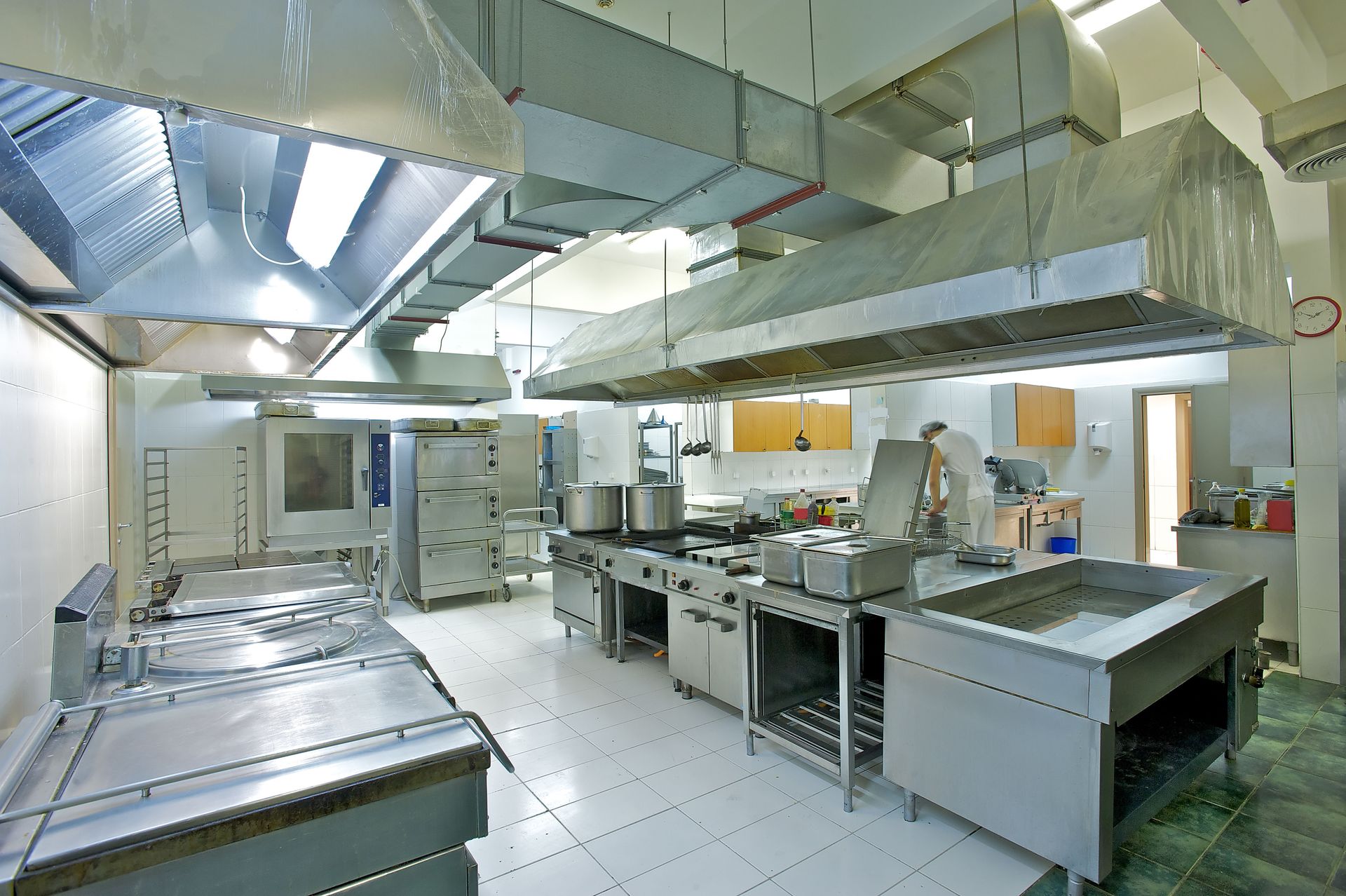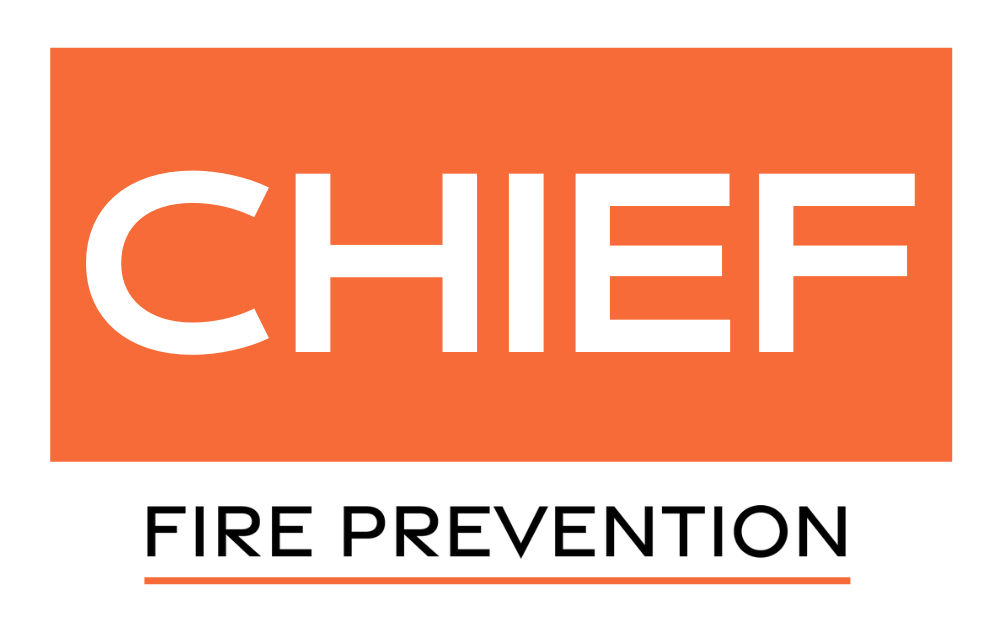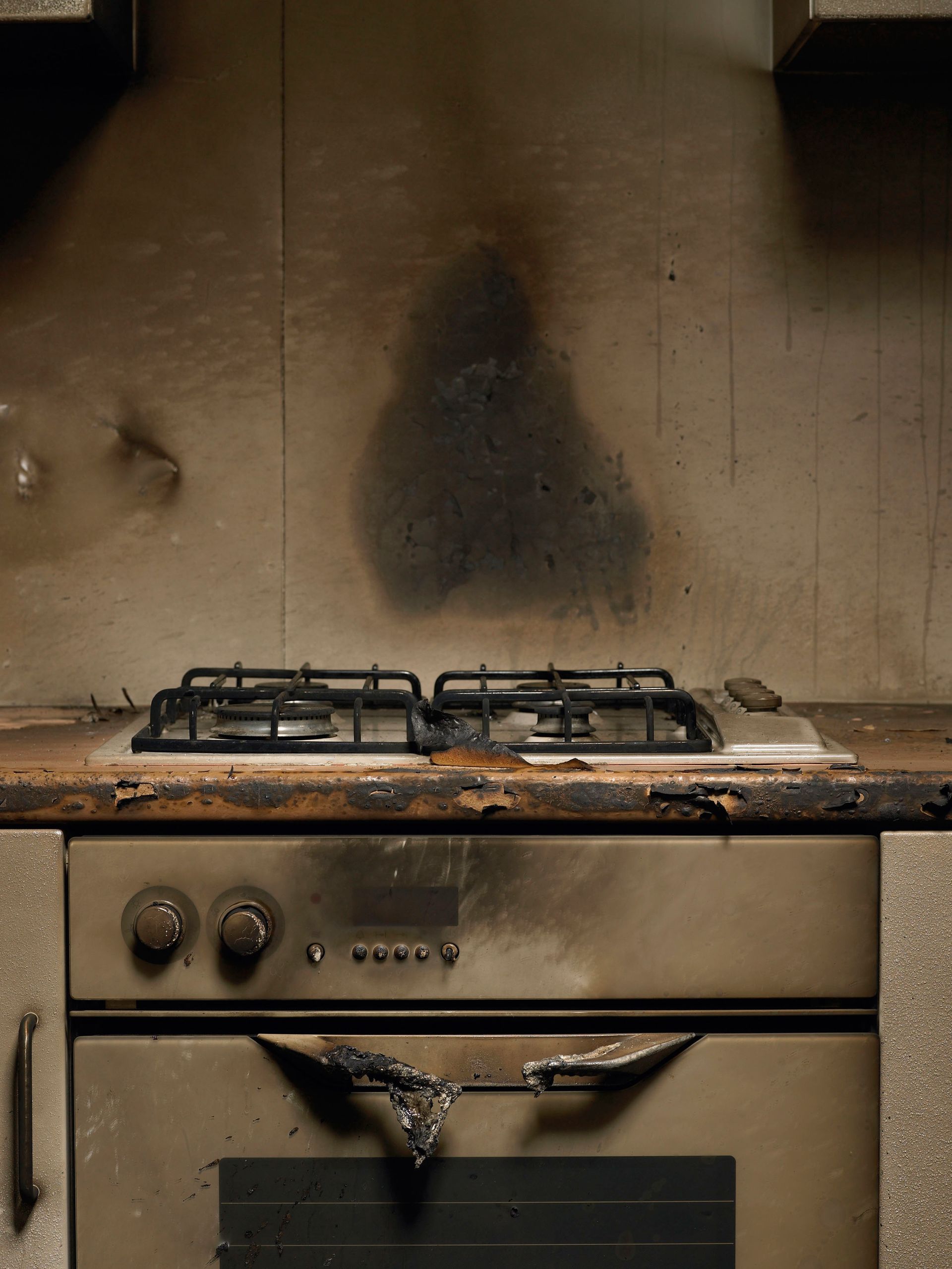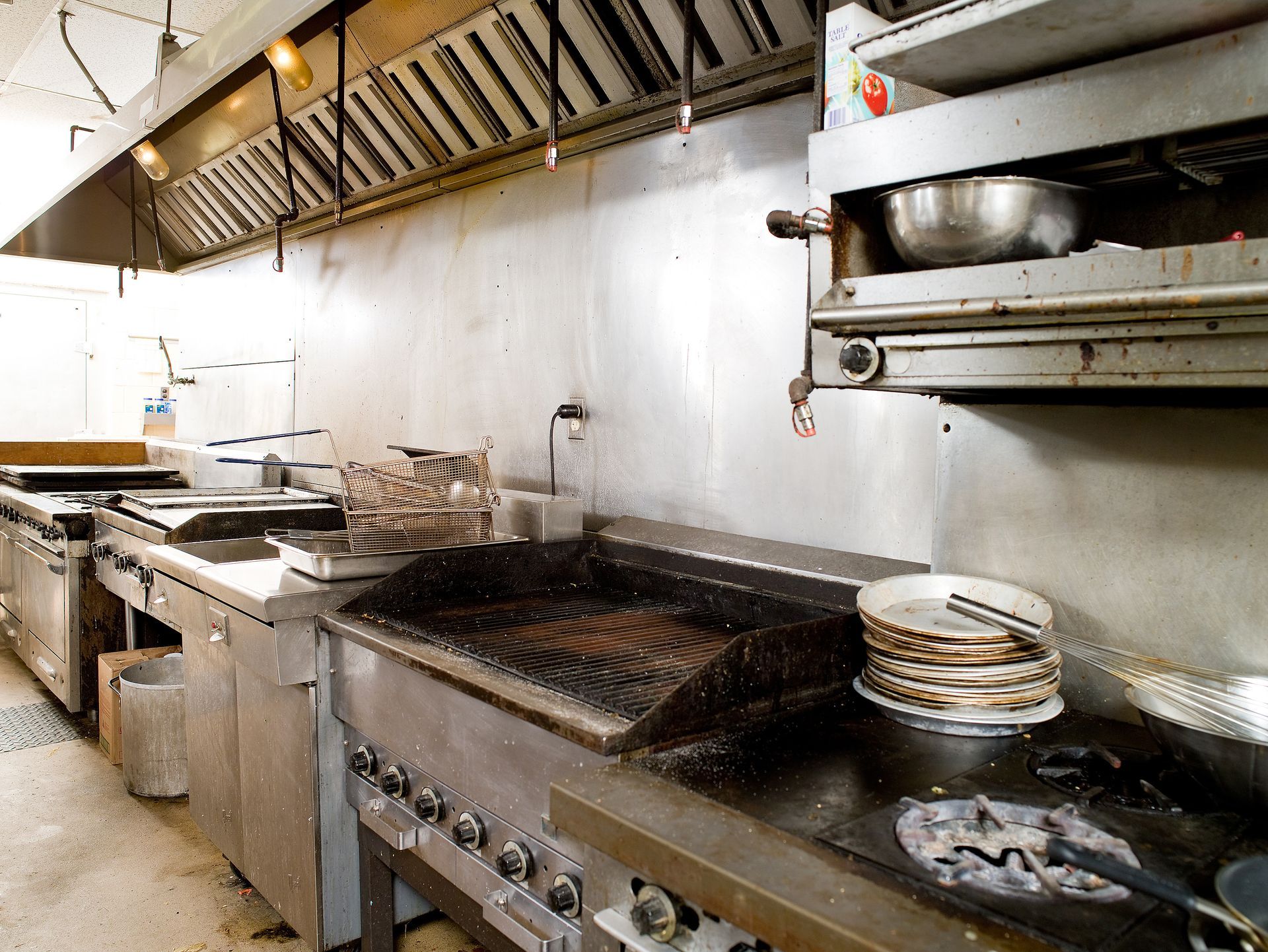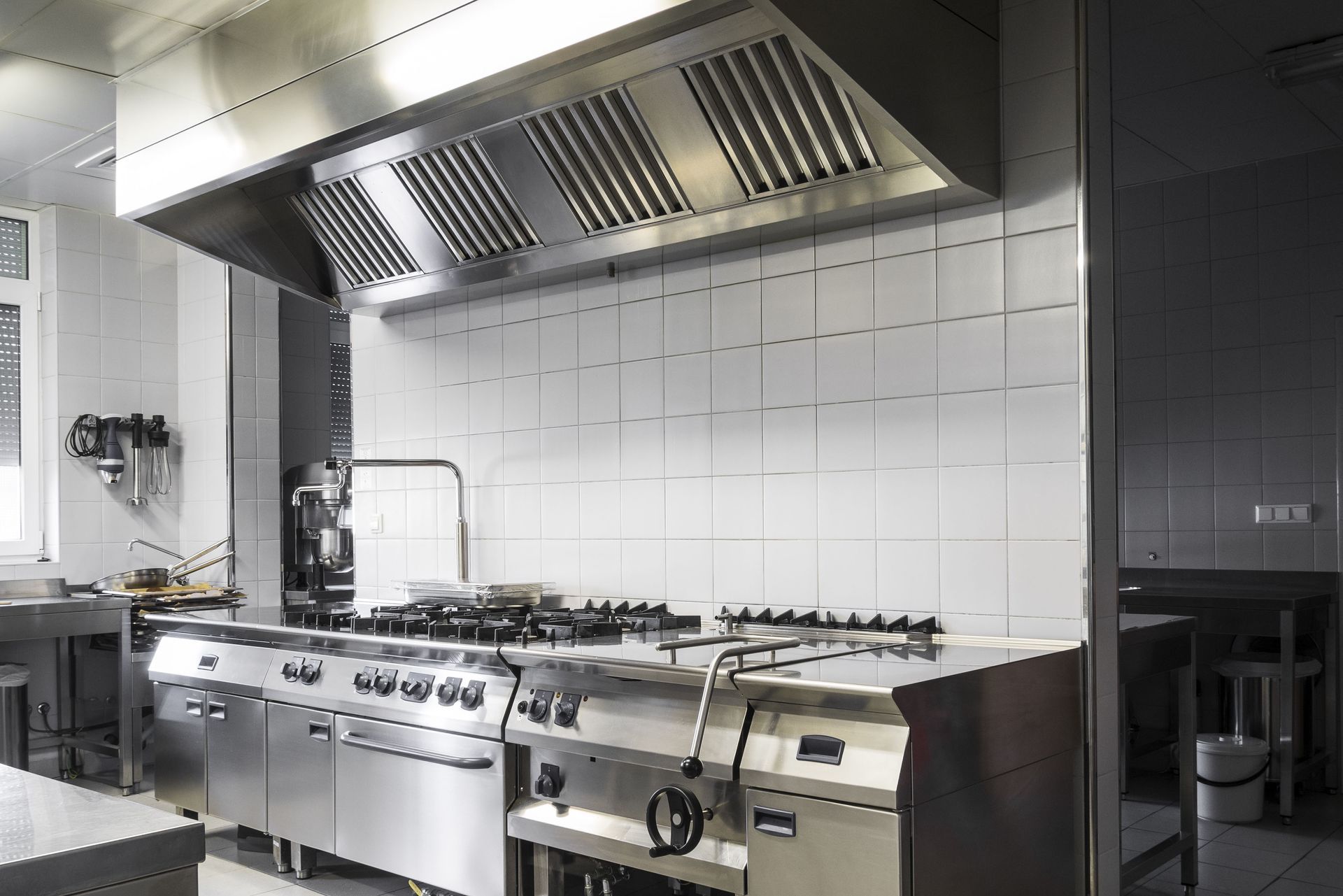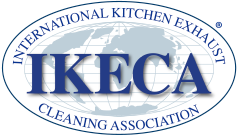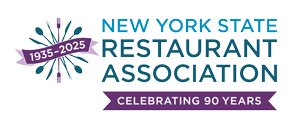November 4, 2025
Fires in commercial kitchens are alarmingly common, posing a risk to lives, properties, and businesses. Understanding the primary causes of these fires is crucial not only for preventing them but also for ensuring the safety and continuity of kitchen operations. With the stringent safety regulations in place, awareness and adherence to safety protocols, such as a fire suppression inspection, become doubly necessary. Kitchen staff, managers, and business owners need to be equipped with knowledge and skills to identify and mitigate fire hazards. A keen understanding of common fire sources can significantly contribute to safety compliance and prevention efforts.
Electrical Hazards
Faulty Wiring
Electrical systems in commercial kitchens often bear heavy loads and are prone to wear and tear over time. Faulty wiring, resulting from outdated electrical installations or improper setups, can create serious fire hazards. Worn-out insulation and exposed wires can lead to short circuits, sparking fires before preventative action can be taken. The complexity of kitchen electrical systems requires that they be installed and maintained by certified professionals. Reliable electrical checks and a fire suppression inspection are therefore critical in identifying issues that could potentially lead to catastrophic fires.
Overloaded Circuits
Commercial kitchens operate numerous appliances simultaneously, heightening the risk of circuit overloads. Overloading occurs when electrical circuits are stretched beyond their capacity, leading to overheating and, subsequently, fires. The risk of such incidents is increased by plugging multiple high-power devices into a single outlet without considering their collective load. Regular assessments of circuit capacity and usage can prevent situations where the circuit cannot handle the demand, leading to safer operations. Kitchen staff should be educated on the risks of overloading to prevent unintentional ignition.
Malfunctioning Equipment
Malfunctioning kitchen equipment can have dire consequences, sometimes causing fires. Equipment like mixers, blenders, and ovens, if not properly maintained, is more susceptible to short circuits and malfunctions. Such devices need regular servicing to ensure that any faults that could lead to fires are addressed promptly. Mechanical issues in these appliances can go unnoticed if staff are not vigilant or adequately trained. It is imperative for commercial kitchens to have a robust equipment maintenance routine to prevent avoidable ignitions.
Lack of Regular Maintenance
Routine maintenance of electrical systems is paramount to kitchen safety. Without regular checks, electrical components can deteriorate undetected, increasing the risk of fire. Scheduled maintenance allows for early detection of potential hazards, providing an opportunity for remediation before incidents occur. Restaurant Technologies highlights the critical role regular maintenance plays in preventing fire outbreaks. Cultivating a culture of proactive safety checks with a fire suppression inspection in commercial operations significantly reduces fire risks associated with electrical malfunctions.
Use of Non-Compliant Devices
Non-compliant or uncertified electrical equipment can introduce unforeseen fire risks. These devices may not meet necessary safety standards, making them more prone to faults and failures. It is essential for commercial kitchens to purchase and utilize equipment that is certified and compliant with local safety regulations. Staff should be trained to recognize accredited safety symbols and certifications when selecting equipment. Failure to adhere to equipment compliance standards can increase the likelihood of electrical fires in the kitchen.
Open Flames
Unattended Cooking
Furthermore, unattended cooking remains a significant risk factor for kitchen fires. In the chaos of busy service hours, it is easy for staff to become distracted, leaving flames unsupervised. This oversight can quickly lead to uncontrolled fires, especially in the presence of flammable materials. Awareness and stringent monitoring protocols are necessary to mitigate these risks. Staff should be trained to prioritize supervision of active cooking stations to prevent incidents of igniting unattended flames.
Grease Fires
Additionally, grease fires are particularly common in commercial kitchens, arising when cooking oils are overheated and ignite. Limited understanding of fire dynamics can exacerbate these events if improper firefighting techniques are employed. Education on the appropriate use of fire extinguishers and coverings to smother fires is essential. Ensuring that the kitchen space is equipped with suitable firefighting gear is a crucial prevention strategy.
Improper Use of Flammable Materials
The misuse of flammable materials near open flames can easily initiate fires. Materials like paper towels, cooking oils, and alcohol-based products, when mishandled, can exacerbate fire hazards. Safe storage practices must be implemented to keep these materials away from heat sources. Safety training should also include education on appropriately handling and disposing of flammable items.
Faulty Gas Connections
Continuing, gas connections are a hidden yet impactful risk factor for open flames in kitchens. Leaks and improper gas line installations can lead to severe fire incidents. Regular inspections of gas lines for integrity and proper functionality are crucial preventative measures. Staff must be trained to recognize signs of gas leaks and emergency protocols for handling detected leaks. Addressing gas connection issues swiftly after a fire suppression inspection prevents the transformation of minor leaks into dangerous fires.
Poor Ventilation
In addition, poor ventilation in kitchen environments serves as an accelerant to open flame risks. Ventilation systems help disperse heat and smoke, reducing the chances of flame aggravation. Blocked or ineffective venting leads to the accumulation of heat and volatile materials, creating ideal conditions for fire outbreaks. Inspection and maintenance of ventilation systems are essential to ensure they operate efficiently and safely. According to NFPA data, neglected kitchen vents are a significant contributor to the 11,000 kitchen fires reported annually, so it is recommended to get a fire suppression inspection when necessary.
Grease and Oil Buildup
Inadequate Cleaning Protocols
Inadequate cleaning protocols are a leading cause of grease and oil buildup in commercial kitchens. When grease accumulates on surfaces and in ventilation systems, it becomes a potent fire hazard. Consistent cleaning routines are necessary to manage grease levels and reduce associated risks. Kitchen management must prioritize training staff in proper cleaning procedures, including the use of appropriate cleaning agents and tools.
Ignition From Nearby Heat Sources
The proximity of grease deposits to heat sources is a recipe for disaster in commercial kitchens. Grease buildup near stoves or ovens can easily ignite, resulting in potentially uncontrollable fires. Separating these elements physically can minimize the chances of accidental ignition. Additionally, vigilant monitoring and cleaning routines around key heat-generating appliances are necessary preventive strategies.
Clogged Ventilation Systems
Clogged ventilation systems serve as a hidden source of fire risk in kitchens, as they may unintentionally foster grease accumulation. Without clear ducts, heat and smoke circulation become compromised, intensifying fire propagation risks. Professional cleaning services are frequently required to ensure ventilation systems operate without blockages. Presenting these services as pivotal safety tools can contribute to a safer kitchen environment.
Professional Cleaning
Finally, professional cleaning services provide expertise that general kitchen staff may lack, especially regarding complex systems like hoods and exhausts. Engaging professionals ensures that cleaning is thorough and adheres to safety guidelines, reducing the potential for fire hazards. These services are invaluable for identifying problem areas and recommending corrective actions. Neglecting professional input might result in overlooked risks, reinforcing why businesses should invest in such services.
Through this examination of the most common causes of fire in commercial kitchens, the urgency of awareness and preventive measures becomes clear. By recognizing electrical hazards, managing open flames, ensuring rigorous cleanliness, reducing human error, maintaining equipment, and designing with safety in mind, businesses can mitigate these risks effectively. Contact Chief Fire Prevention today for more information about our fire suppression inspection services.
